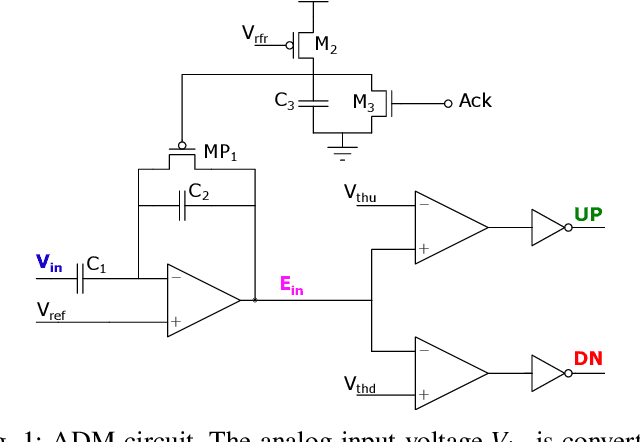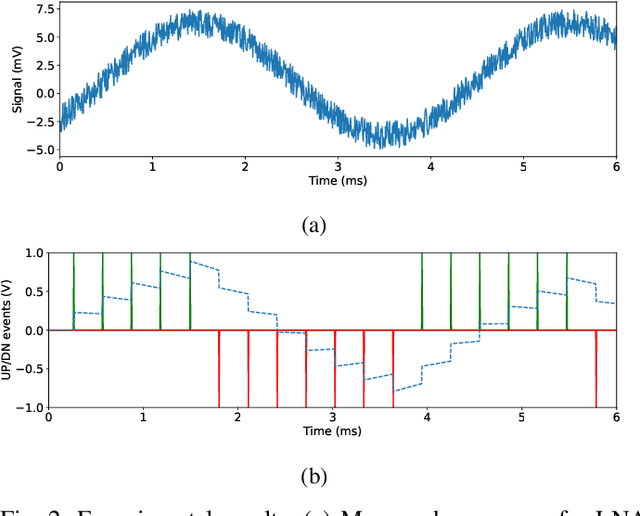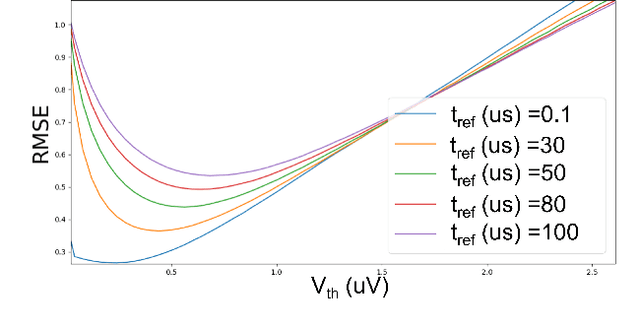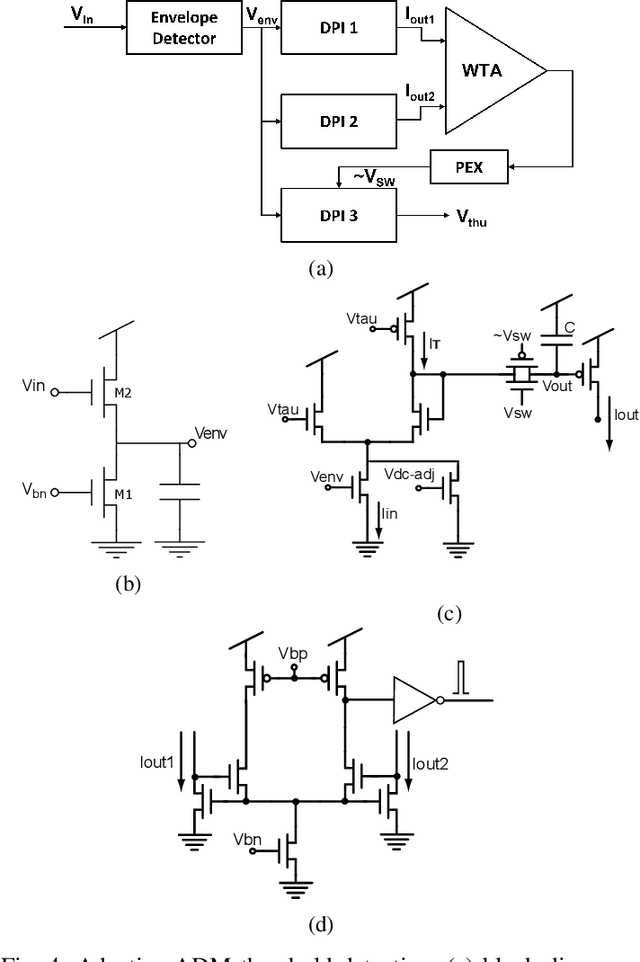An Adaptive Event-based Data Converter for Always-on Biomedical Applications at the Edge
Paper and Code
Nov 23, 2022



Typical bio-signal processing front-ends are designed to maximize the quality of the recorded data, to allow faithful reproduction of the signal for monitoring and off-line processing. This leads to designs that have relatively large area and power consumption figures. However, wearable devices for always-on biomedical applications do not necessarily require to reproduce highly accurate recordings of bio-signals, provided their end-to-end classification or anomaly detection performance is not compromised. Within this context, we propose an adaptive Asynchronous Delta Modulator (ADM) circuit designed to encode signals with an event-based representation optimally suited for low-power on-line spiking neural network processors. The novel aspect of this work is the adaptive thresholding feature of the ADM, which allows the circuit to modulate and minimize the rate of events produced with the amplitude and noise characteristics of the signal. We describe the circuit's basic mode of operation, we validate it with experimental results, and characterize the new circuits that endow it with its adaptive thresholding properties.
 Add to Chrome
Add to Chrome Add to Firefox
Add to Firefox Add to Edge
Add to Edge